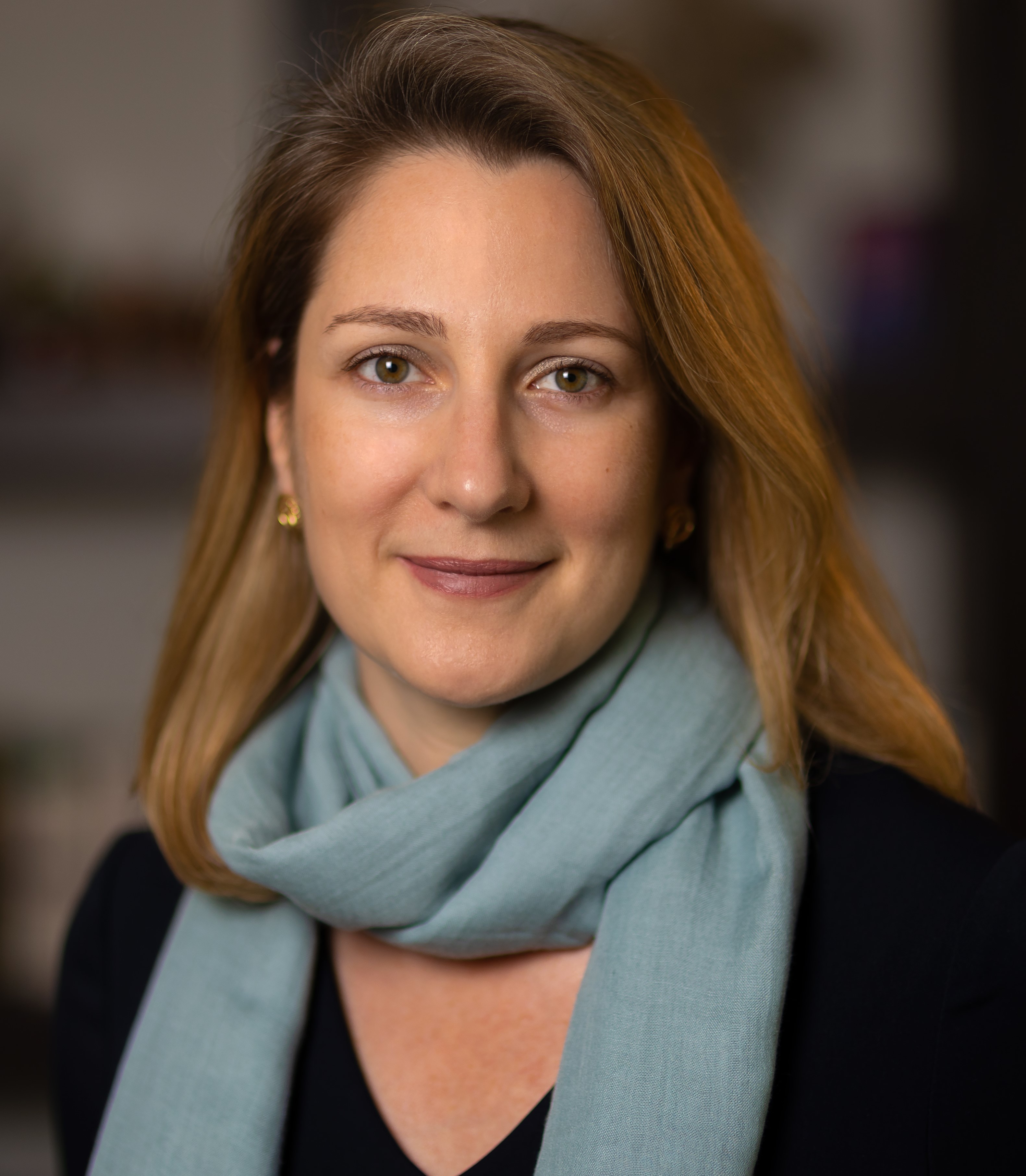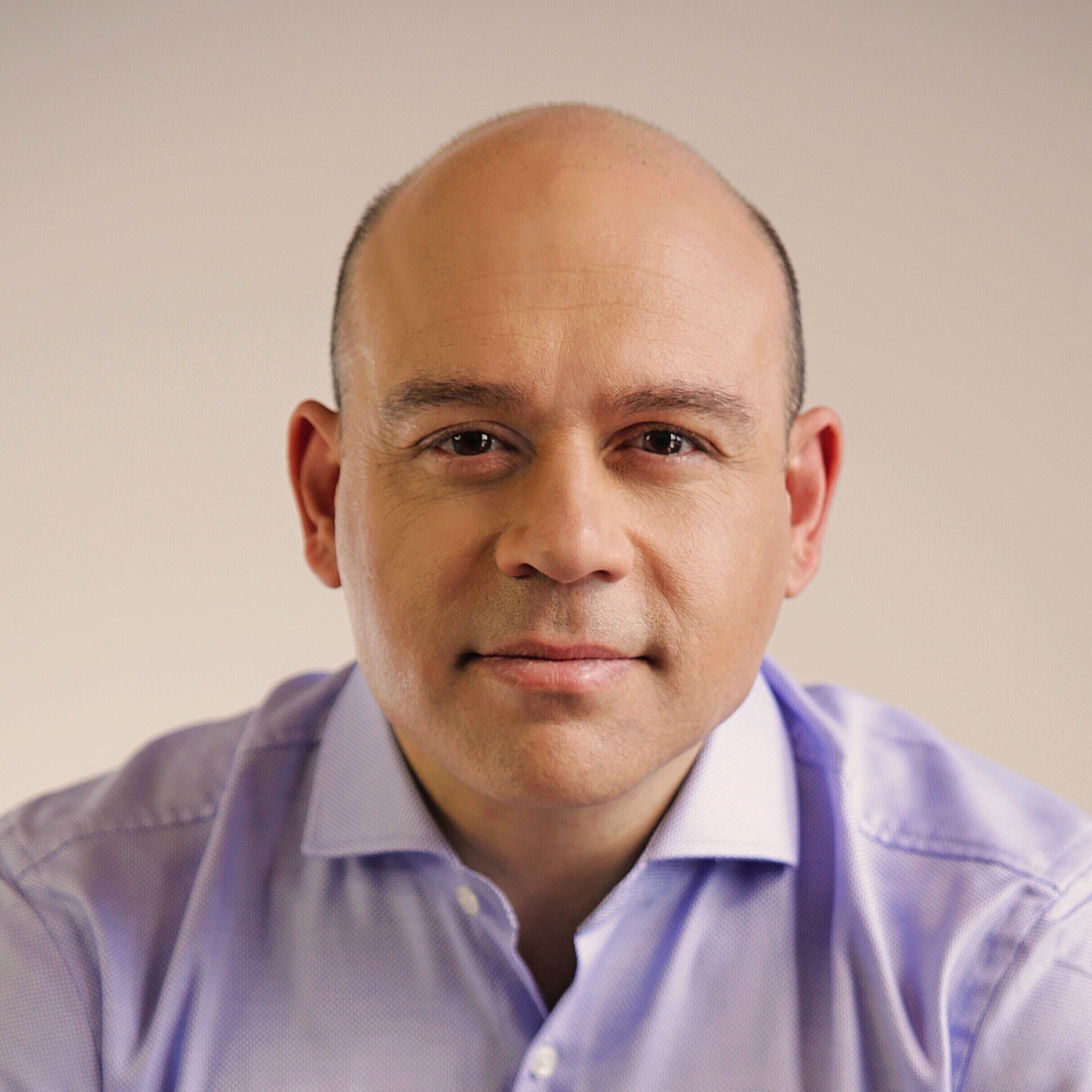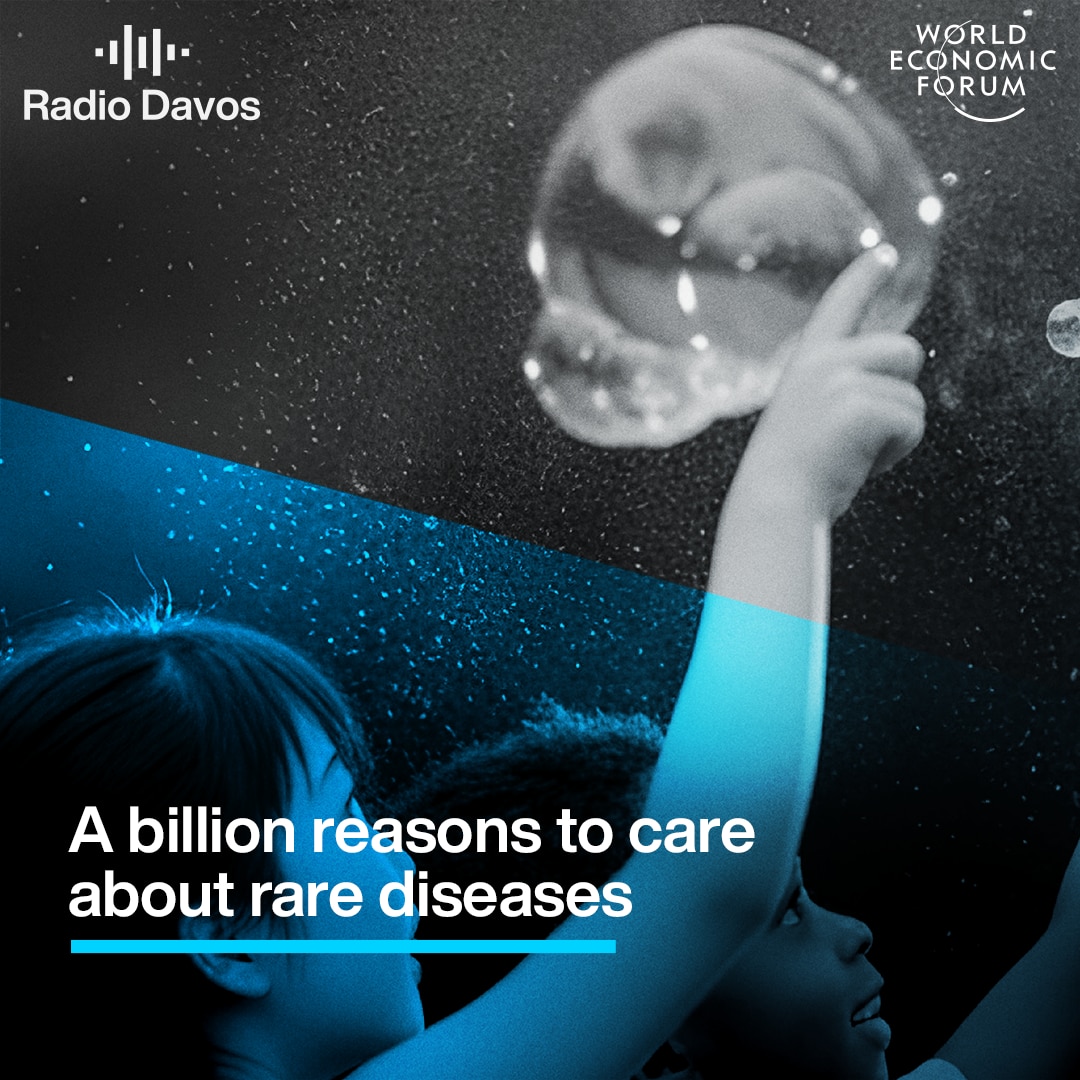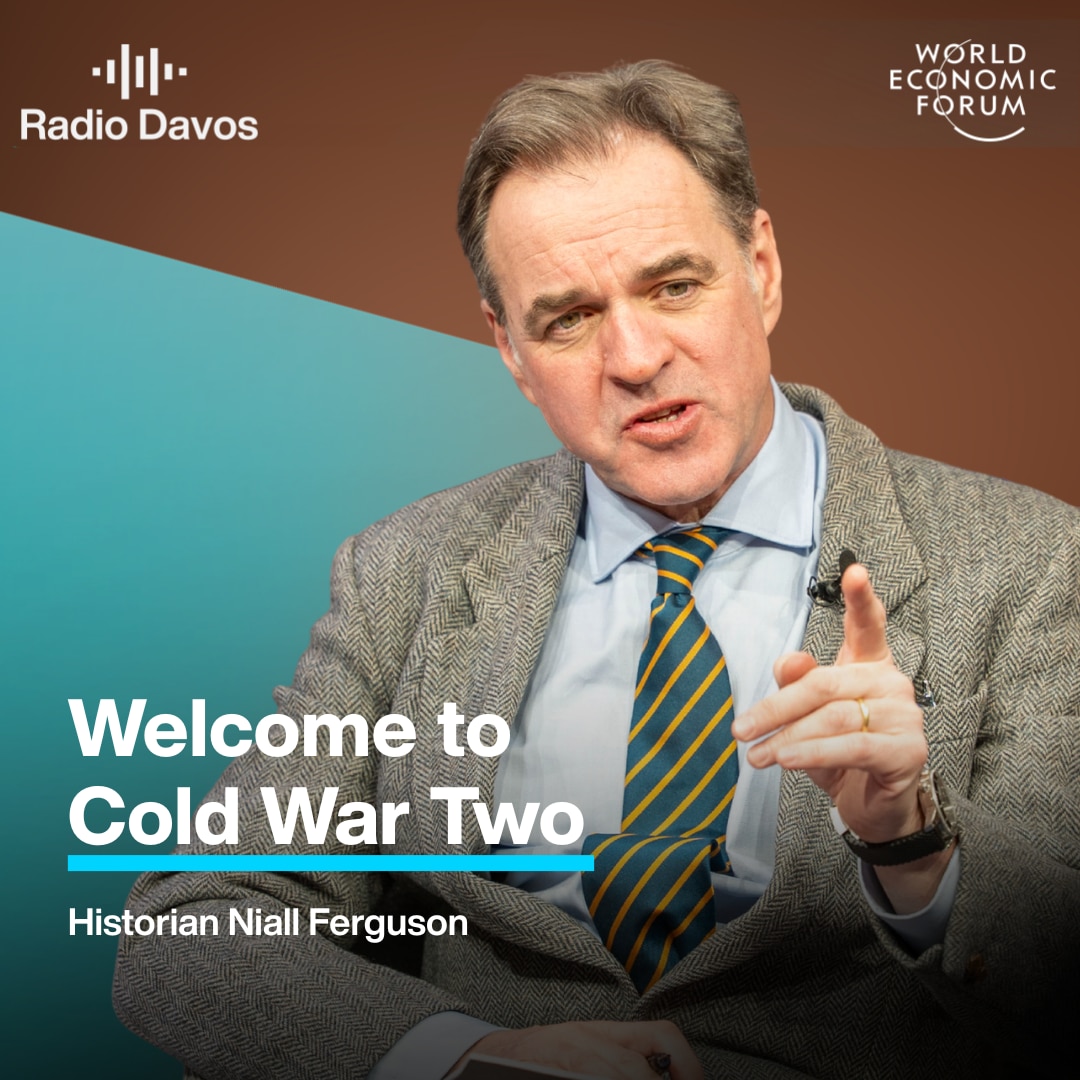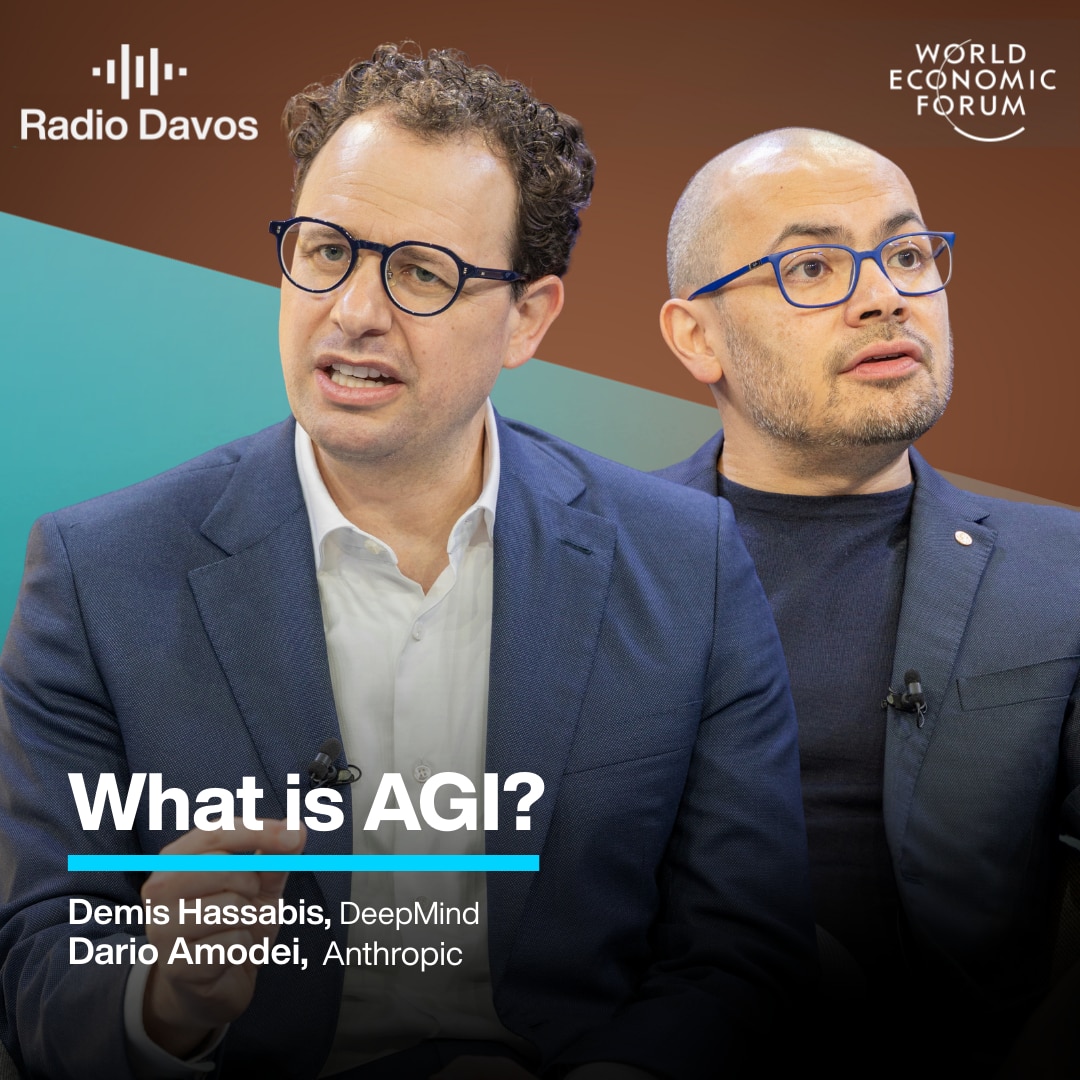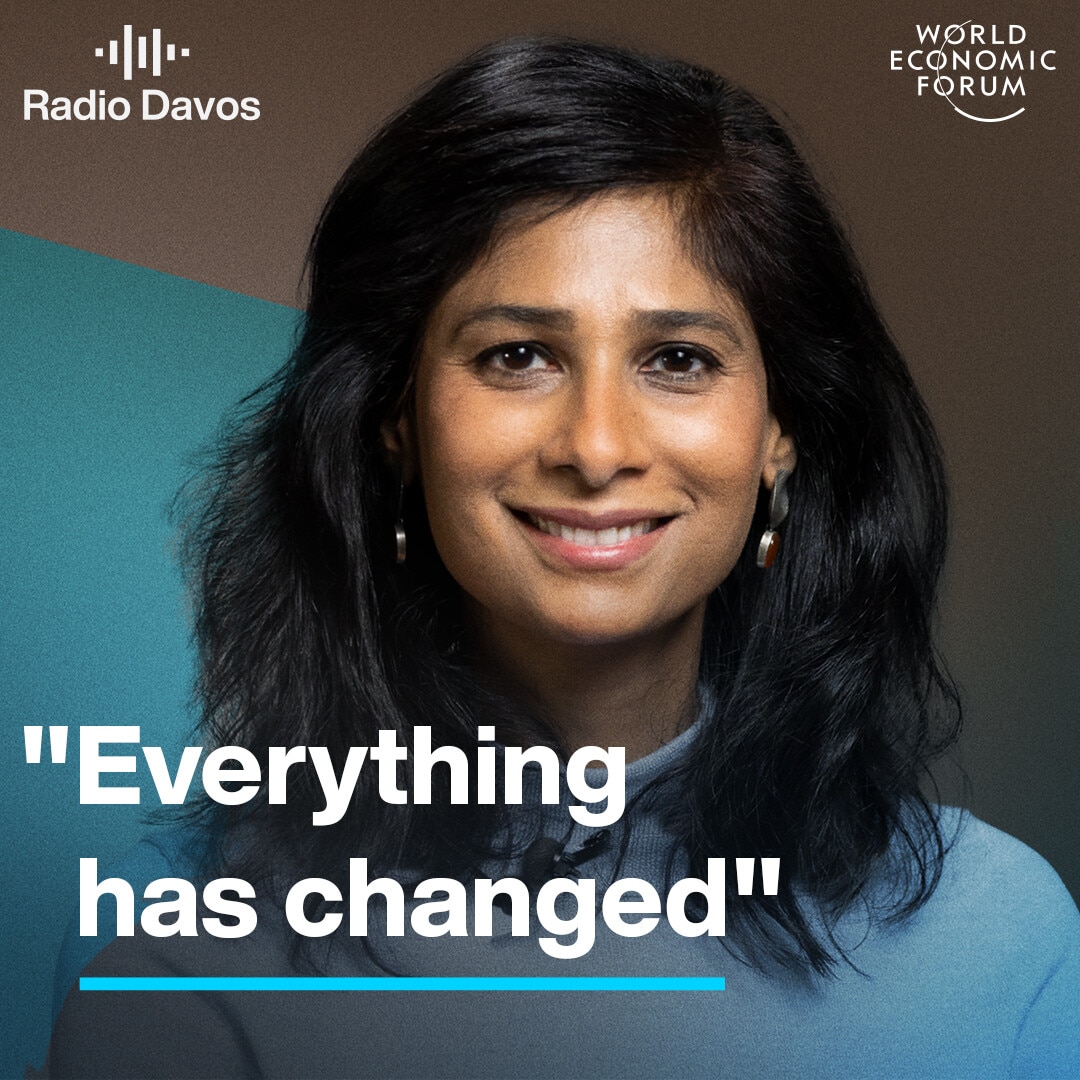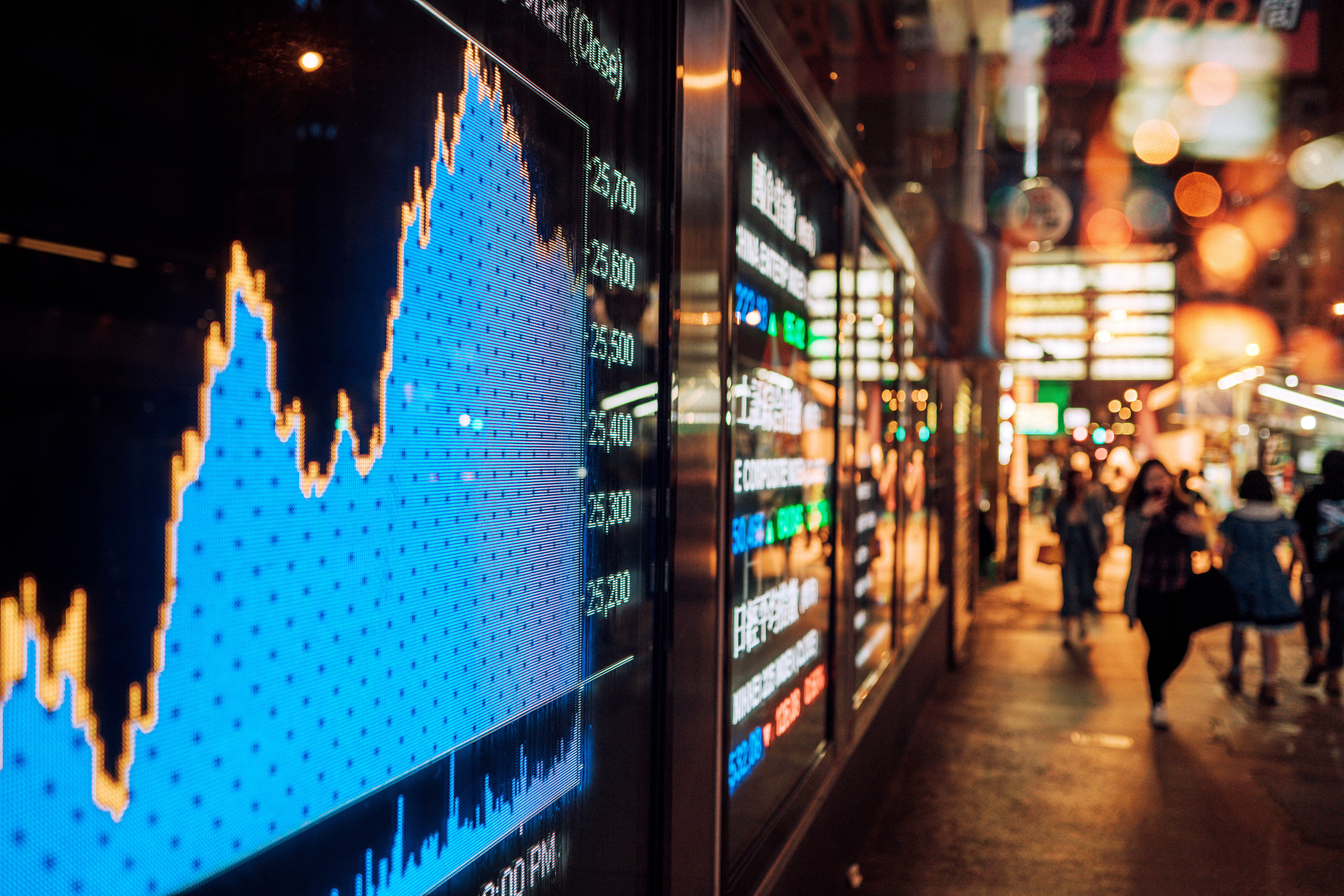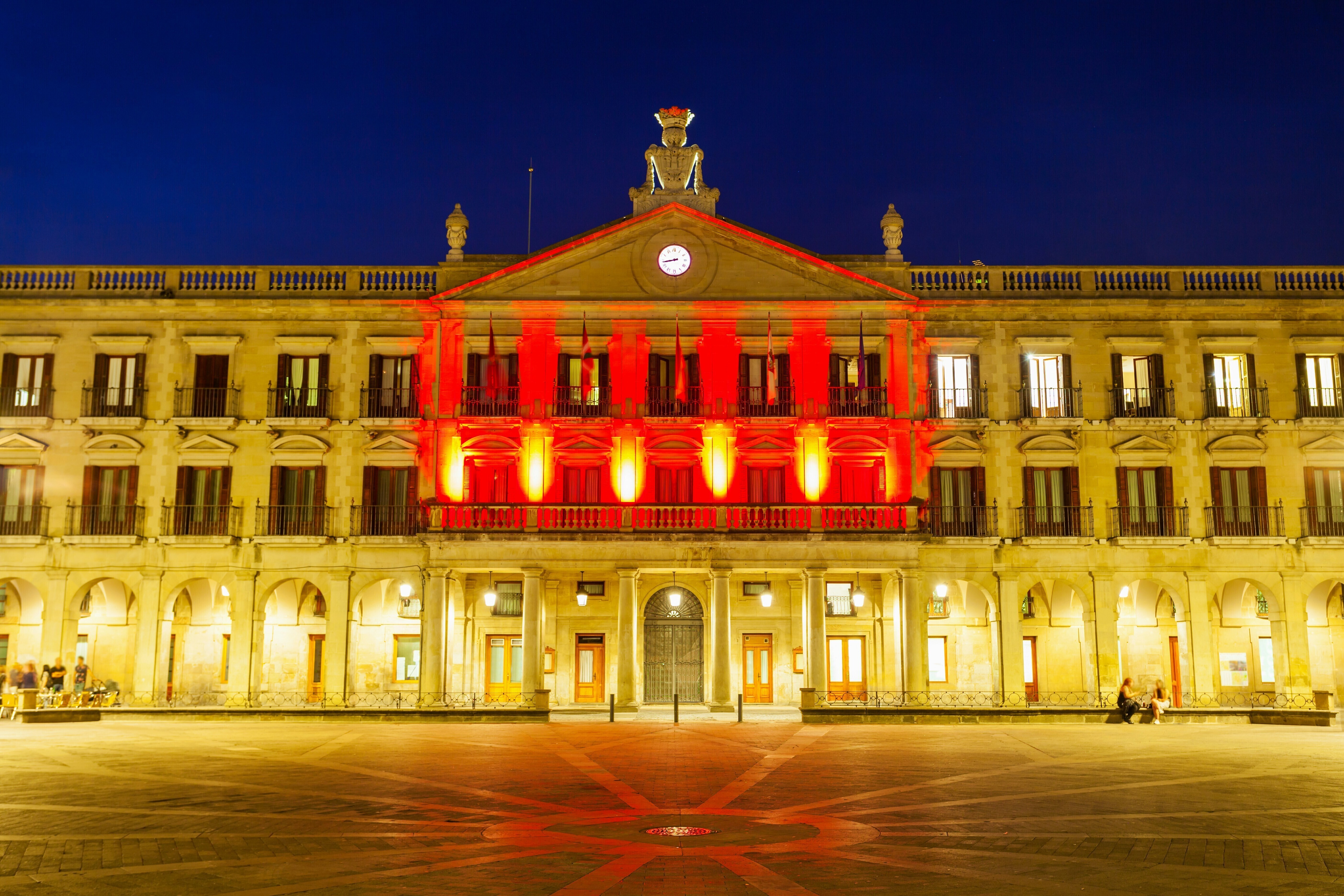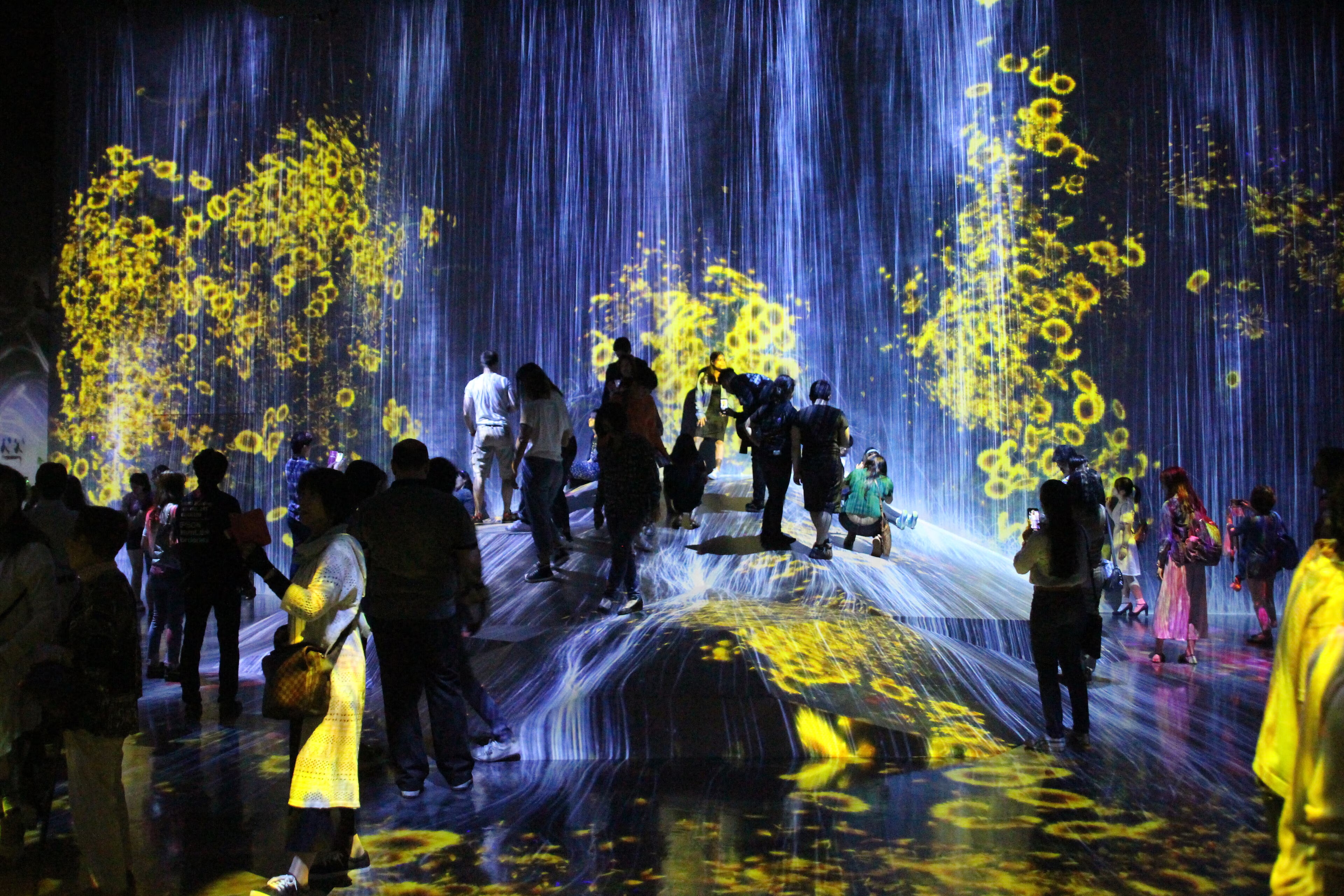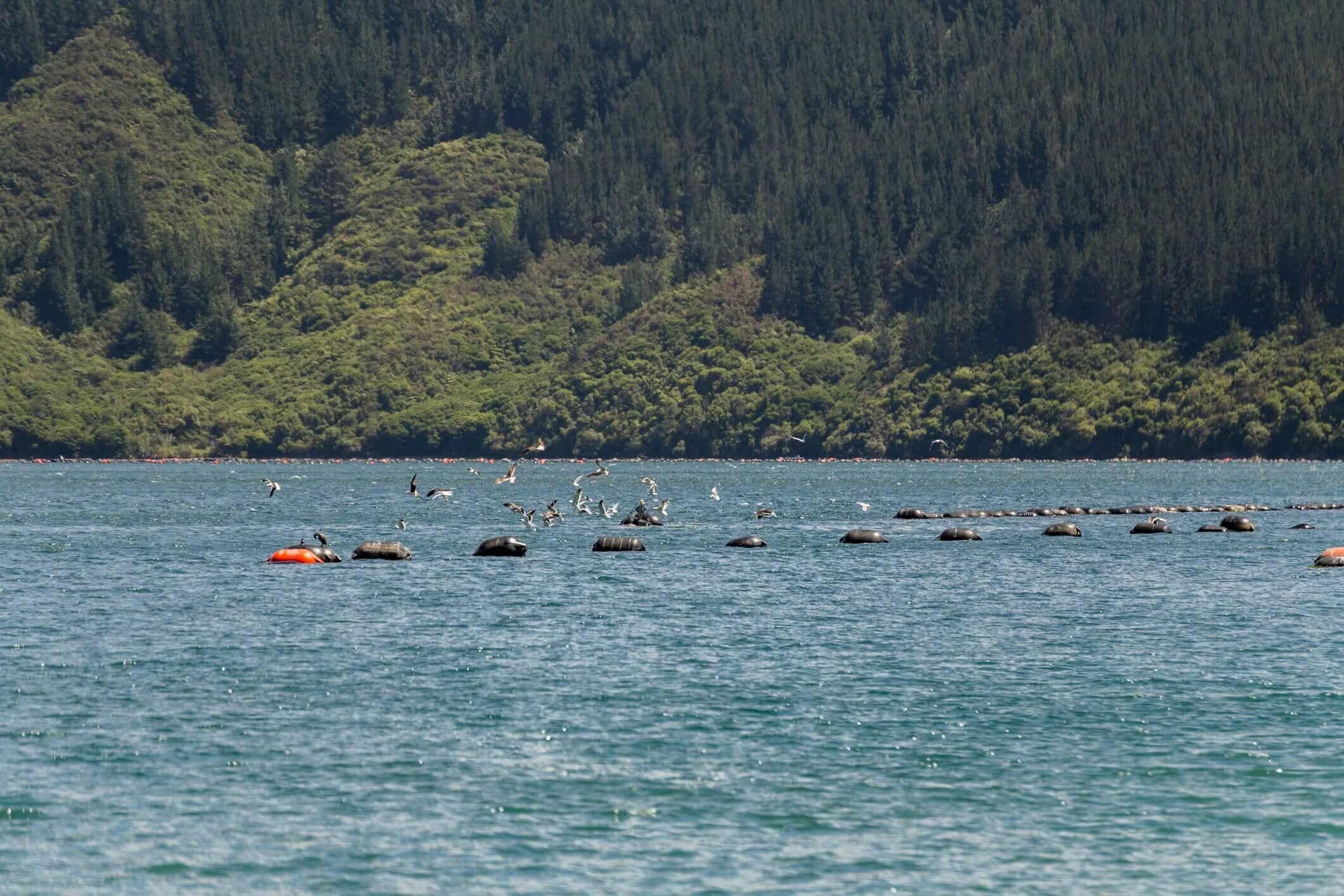After 2025’s ‘seismic’ shock, what’s next for development and aid
ポッドキャスト・トランスクリプト
Robin Pomeroy: Hello, I'm Robin Pomeroy, host of Radio Davos from the World Economic Forum.
Raj Kumar: And I'm Raj Kumar, President and Editor-in-Chief at DevEx.
Robin Pomeroy: Hi, Raj. It's great to meet you. We're here making a podcast together. Me for Radio Davos, you for the Devex podcast, weekly podcast, which is called This Week in Global Development.
We're meeting here at the World Economic Forum's office in Geneva where the forum has been hosting the Humanitarian and Resilience Investing Initiative's Frontier Markets Impact Meeting which has brought together more than 80 leaders from governments, humanitarian development agencies, private investors and others looking to unlock catalytic capital for frontier markets. And we're lucky enough to have brought a couple of the people from that meeting, including Raj, to have a conversation about development.
Raj, can you tell me something before we introduce the guests, what is Devex?
Raj Kumar: Sure, we're a news organisation and we cover global development, so we're widely read at the UN, in the NGO community, at places like the Gates Foundation, and at places like, well, what used to be USAID. So it has not been a boring year for what we cover. This is one of the most tumultuous years in global development and that's what we do at Devex.
Robin Pomeroy: Absolutely, well the World Economic Forum, if any of your listeners aren't aware of us, it's the international organisation for private-public partnership and hosting events like today's is the kind of thing the World Economic Forum specialises in, bringing different stakeholders to talk about important issues. And Radio Davos is a weekly podcast in which every week it's a different big issue that we're looking at, usually looking for solutions to some of the world's big problems.
With that, let's get on to the big issue today. As you say, it's been a tumultuous year in your area. Tell us who our two guests are.
Raj Kumar: So we've got two fantastic guests to tell us about the year that we've had and what's coming. Carla Haddad Mardini, who's the Director of Private Fundraising and Partnerships at UNICEF, hi Carla. And Julienne Oyler, who's co-founder and CEO of Inkomoko. Great to be with you both.
Robin Pomeroy: Thanks so much. Julienne, Carla, great to meet you both. All three of you are kind of steeped in this topic of development. But for anyone who hasn't been paying attention, you just gave us a great introduction. What are the headlines from developments in development and aid over the last year? Who wants to start us off? Carla, maybe.
Carla Haddad Mardini: If you'd like, I think it's really an incredible year in terms of the disruption. I think we can compare what is happening to our sector across humanitarian and development as to what happened to the financial sector in 2008. It's a massive disruption.
Not that we didn't see it coming. Some elements were there and we saw them coming with the overfunding that was happening in 2023, 2024 for the response in Ukraine. But then events unfolded and there was a domino effect across the US and European institutional partners and donors that created a situation of a global funding crisis with funding cliffs depending on which country we're talking about and what situation we're in.
Robin Pomeroy: Julienne, tell us before you give us your kind of elevator pitch assessment of the situation, what is the organisation you work at? Just give us a kind of a view about that.
Julienne Oyler: Thank you so much for that. So I run an organisation called Inkomoko. And we are an organisation that works primarily with entrepreneurs living in and around displacement-affected communities. So refugee camps, people who have been internally displaced, people who are returning from countries where they were living.
And what we do is actually quite simple. We provide business advising to existing entrepreneurs. We help them grow their businesses. And then we actually do direct investments into these businesses.
So we now are the largest lender to refugee entrepreneurs in Africa.
And what's really interesting about the space that we're operating in right now is that these are businesses that primarily worked in humanitarian markets.
But since January, as we've seen the humanitarian industry shift foundationally. What we're seeing is that businesses are now the lifeline for essential services that were once before funded by NGOs, donors, big UN agencies. And so there's been a profound shift.
Robin Pomeroy: And from your point of view, Carla, UNICEF, everyone knows what that is, the United Nations Children's Fund, been around forever, it's a real household name everywhere. You've seen things change. Are you having to pivot? Are you have to make new partnerships? I'm sure we could spend a week talking about this, but what would you say to people about the work of UNICEF?
Carla Haddad Mardini: So UNICEF is impacted like any other organisation today. But where we have been able to manage things is that we've had a very diversified portfolio of partnerships and funding.
So to make it simple, we're like perhaps 80% funded from public sector, 20% from the private sector. This is in percentage terms. But in absolute terms, the figures are big.
So our engagement with the private sector is not new. We've been working on the frontiers of developing shared value partnerships with the private sector. And we have a deep bench of supporters across foundations, global philanthropy, ultra-high-net-worth individuals, the billionaires of today who want to give back, but also multi-faith-based organisations, and individual givers, Mr. And Mrs. Everyone Everywhere, who give monthly to UNICEF to support in a very flexible way, which allows the organisation to channel the funding where it's needed most.
So it's a diversified portfolio, but the organisation is facing a 20% contraction. And the reality of that is disheartening.
I was in Bangladesh two weeks ago, and I saw in the largest Rohingya refugee camp there Cox's Bazaar, the impact of those cuts in real time on the population, on the refugee population, but also on Bangladeshis in Dhaka and elsewhere, who are seeing development reversals happen in real time.
It's disheartening because we've made so much progress over the years and now we're seeing this progress fall into pieces.
But it's not just doom and gloom. We can do something about it.
Robin Pomeroy: I don't want to us to stay on doom and gloom, but before we get to the more optimistic scenarios, give us an idea of what does that actually look like if you go to, we remember Cox's Bazaar because it received a million more refugees, I think, from Myanmar a few years ago. Most of us haven't ever been there, but if you were there, what does it look like when funding is cut and there are problems?
Carla Haddad Mardini: It puts the organisations working there and the local community in an impossible position. The choices we have to make are disheartening.
I was in classrooms, and in some of the classrooms that used to have many girls attending, I was in a classroom of 18 boys where you had only three girls. And the girls before I left were begging for UNICEF not to close the classroom because what it meant for them if they're not schooled. It's early marriage. It's a direct correlation. It's economic reasons. It's protection of the girl. All kinds of issues.
The problem that we're faced with is that we cannot just stop one sector and maintain another. We have a multi-sectoral approach. Development is about connecting the dots across nutrition, health, water and sanitation, quality learning. All of them are connected. So it puts the organisations there in an impossible position of making impossible choices that will really impact the future of these children and the community there.
When they had reached a level of learning and integration that is very positive, and the same applies to the host community, where they see also the unplugging of funds impact the development work there.
Not to mention that Bangladesh is one of the most important countries in terms of the garment industry, ready-made garment industry. And many women work in these garment industries. And so all the work we do around that to support these women who leave their children at home when they go to the fabric, to the company where they work, all these funds are disappearing.
And so the question is, how do we create long-term sustainable impact by crowding in private sector capital, not in a an opportunistic way. I always say it's not because now we have a crisis on the public sector side that we will go and beg the private sector to come in. The private sector has a role to play in itself, regardless of the crisis. And we've been trying, but now there is momentum to take their engagement to scale.
Robin Pomeroy: Raj, I'm going to hand over to you to ask the questions for kind of the next bit. But before you do, do you want to kind of give us your assessment of what's happened over the last year?
Raj Kumar: Yeah, I mean, my head still spins from the last year. We were actually here in Davos when we broke the story that the Trump administration was going to stop all U.S. aid. And at first, when I heard the story from our reporter, I thought, this can't be true. But obviously, we had the documents, we had the sources, and we broke in it, and it reverberated around the world because it led to this really rapid cascade effect.
Ultimately, even the UK government had cut their foreign aid, which they had already cut. They cut it by an additional 40% saying, hey, we need to fund our defence. And we're going to take it directly from the foreign aid budget.
So this cascade effect has gone around the world. It's all happened much faster than anyone expected.
And in some ways, it's pretty simple. It's a story about money, right? There's less money. Everybody has to tighten their belts. But it's really much more complex than that because the needs have been growing.
The humanitarian needs are growing as the climate changes, as there are more conflicts in the world, So there's already been a gap, even before these funding cuts.
So really, what we're talking about now is a business model change. So no longer looking to governments in the global North for all the funding, a real business model change where you look for private money and philanthropic money from average individuals, from billionaires, and from the private sector, from investors around the world. And an operating model change, where we don't do things the way we used to. You know, listening to Julienne, not seeing refugees as a burden or a problem, but actually as an asset, who can start businesses, people who bring real talent to the marketplace.
And I think that new operating model, that new business model is a seismic change for this community. And everyone's going through it really quickly, all at once, and we're all kind of grappling with what are the implications going to be for the countries you care about and for the whole world.
Robin Pomeroy: Seismic change, then is that a line drawn now, there was before this happened and there's after this happened? There's no going back now, is there?
Raj Kumar: You know, there are people who would disagree and say, no, we could go back. Let's fight to go back, I would argue there's no going back.
And I say that because I think the politics that are driving these changes in the global North, in the US, in the UK, in France, in Germany, and elsewhere, those politics of saying, you know, we've got to focus on domestic needs. We've got to focus on defence. We have ageing populations, growing health care and pension needs. We have fiscal challenges. We have debt. These are not a one or two year issue. This is not one political cycle. This is going to take some time to work through.
This doesn't mean that official aid coming from rich countries to poor countries is unimportant or it should go to zero. There's of course a real argument for countries to continue to invest in this, but the idea that we would go back is hard for me to see.
In fact, I write every year a very scary article to write, which is my predictions for the year. And one of my key predictions this year, the first one on my list, was that we've reached peak official development assistance. And I said this before Donald Trump took office. I did not expect it to come true so quickly. But I think that because of all these structural issues.
So we're not going to go back, in my view, to where we were before.
Robin Pomeroy: OK, so let's look at the future then. I mean, what questions would you ask our guests here? You've been talking to them all day, I know. But about where do things go from here?
Raj Kumar: Yeah, well I want to start with Julienne, because there has been a long conversation about how do we bring in the private sector, how do we use market-based mechanisms, how to we invest, right?
It's not like it's a new thing, but it has taken on a whole new level of importance and there's new energy in that space. So what are the actual challenges you face when you say, this is working, you're the largest investor in these entrepreneurs and refugee entrepreneurs in the continent of Africa. What are the challenges you face to scale to a level where you could potentially one day even come close to what official aid was from governments.
Julienne Oyler: To take a step back, so in Africa right now, these are unofficial numbers, but there are about 50 million forcibly displaced people on the continent. This is about the population size of the 10th largest country.
So when we're talking about numbers of people, to ignore this population would just be sort of bad business in some way, why would you ignore a market of this size?
Some might argue, well, but why would we include a market of this size if they don't have any money to spend. But estimates are that the purchasing power of forcibly displaced people is around $82 billion. So that would also be the equivalent of in the top 15 GDPs of the continent.
And so I think that's something that we like to say is that here is a group of people who have absolutely needed humanitarian assistance in emergency situations for the most vulnerable, absolutely.
But when we look at the market size and when we look at market opportunities, there is real money, real businesses, daily transactions. And these businesses operate just like businesses do in other capital cities, regional hubs. These are businesses who are the local philanthropists. They're offering scholarships to local kids. They're the employers. They're creating as many jobs for nationals as they are for other refugees. These are people who are innovative.
And I would argue that if you can successfully run a business in an isolated market with extreme conditions and you're turning over a million plus dollars in market consumption each year, you're the business owner that we all talk about, right? In business schools and case studies, you're resilient, you understand your market.
And so the work that we do is to say, you know, here's what's really happening in these markets, the business opportunities.
But you're absolutely correct. We are overwhelmed with demand. We cannot do all of the investment that these communities need. And so what we need to do is make the business case for other private sector companies to come in.
And one example of this is, two weeks ago, I was in South Sudan, a country that has for too long been known as a producer of refugees. And they haven't gotten the credit that they need to be a welcoming, generous host of refugees in the region. They welcome close to 2 million people in this country. Fleeing war in Sudan, returnees, people internally displaced because of climate.
So I'm up in one of the camps. And I'm not bringing other NGOs or other philanthropists on this visit. But what we're bringing is we're bringing the telcos and the banks. Because here is a population, 300,000 people, people who are doing cross-border trade, people who were getting remittances, people who who are running big wholesale shops distributing food.
And it was actually the telco that said, I had no idea that there was this dense of population where they're already transacting in air time, they're trying to get mobile money off the ground, that this was a market ripe for this commercial service. But we just didn't know.
And it was the same thing with the bank.
And so that's something that we need to do I think in order to sort of broaden our understanding of market opportunities.
And the final thing that I'll say about this is that, private sector talks about risk, right? Especially in Africa, there's a risk premium that investors from the global North see this as risky markets. And what I would encourage private sector in Africa to think about is, well, why are we outsourcing risk to the humanitarian agencies? Why aren't we as private sector investing in the thing that will sort of de-risk the perception of our markets?
If migration, climates, emergency, refugees, if that is actually hurting our ability to raise capital, then we can do something about it locally, and that will help our business grow, it will bring in the local needed capital and services that not just because it's a good thing for us to do, but it's good business case.
We have a lot of work to do. But hopefully these types of events can start to change people's perception just enough to say, I actually want to come visit. And see what it's like to be in a place of 500,000 displaced people plus local hosts and all of the money that's transacting here.
Robin Pomeroy: And what do they say in response to that, they're not investing in a risk, they'd rather see public money or aid go into those risk areas because they don't want to take the risk. Is your message to them, well, actually it's worth your investment because these are profitable markets, just different markets, maybe, but profitable still?
Julienne Oyler: It's different markets, it's profitable markets, and I would say, you know, the assumption that refugees are very, you, know, highly mobile, why would I invest in a refugee business when they could just pick up and walk away? And one thing that's really interesting is that, you now, we've disbursed close to 50 million U.S. Dollars in direct investments. We have a 97% repayment rate. Our refugee clients are better at repaying than the local markets.
Carla Haddad Mardini: They don't default.
Julienne Oyler: They don't default. Because they don't have other options.
And when you bring in formal structures, formal financial services, it not only is a great thing for their business but it's profitable for your business and from the humanitarian perspective it actually offers protection because when people operate in the formal economy they have less sort of predatory lending, less sort of you know other types of of really traumatic and dangerous things.
And so absolutely, for a private sector, one, it's the business case that this is a profitable market. Two, that it de-risks the industry at large. And three, because we as a small organisation as the largest lender, there's plenty of room to come in and scoop our market. So we welcome that.
Raj Kumar: So this sounds really good, but I wonder how many people would put their 401k or their pension fund in it.
And there is actually an answer to that problem of people who are worried, and that's something they call blended finance, right? It's not new. But this idea that there are people who are willing to take some more risk and people who can't take much risk, right. They've got money that they've got to be very careful with. And you can blend those kinds of funds together to make the opportunity for everybody to get behind in an investment.
So Carla, I know this is something you're doing at UNICEF, and there are things like guarantees where you can say, well, this is a very scary market, but there'll be a political risk guarantee. If the government changes, you'll get your money back from your investment. There are all kinds of other instruments that will help investors recoup at least some of their funds and de-risk these programmes. So tell us a little bit more about what that is. How does UNICEF engage with private sector investors in that way?
Carla Haddad Mardini: Great, and it builds well with what you've just said. I think one of the first things I would like to say is that we also need to move the private sector, and here it's really the companies, not to move them away, but not to just look at that from the lens of CSR. We need this to come to the boardroom at the core level, core business, where the CEOs are discussing.
Robin Pomeroy: CSR is Corporate Social Responsibility.
Carla Haddad Mardini: Corporate Social Responsibility which is generally a little bit peripheral, so what we want is bring that to the core business of the company or the organisation so that they bring their core assets to bear to solve global problems. It's not just supporting one tiny project somewhere from a CSR perspective.
That's one thing, and we see the shift happening now with CEO's engagement on big issues on climate, nutrition, wash and education.
But back to your question, I think that, so we talk about blended finance, we have all these buzzwords too, innovative finance, alternative finance, all kinds of words, and sometimes the complexification of the jargon and the words we use create a rift between that part of the world with the implementation level in country. And I think we need to really de-complexify.
It's not that difficult to understand, actually. And sometimes alternative finance, which is a mechanism that exists that is not new, is applied for the first time in our sector. So we call it innovative. So we get bogged down with all these terms.
It's very simple. The question is, how do you manage risk? And it's true, over time, countries have de-risked their investments to support other populations in the global South through organisations.
Now if we look at things that work well in the long term, and here I'm putting humanitarian emergencies aside, that's one thing, but let's think development. You need to invest, and this the private sector understands, even philanthropists understand it, is they're not just doing charity, they're investing their money that was hard earned or inherited intergenerationally, they're protecting it and investing it in the best way possible. They understand long-term patient capital. They understand that in order to make a dent in a certain global challenge, whether it's climate change or the incredible malnutrition situation that we have in so many countries around the world, even two famines in 2025, which is unfathomable, they understand that you need to invest in the long term and in a multi-sectoral approach, not project by project, because it's very hard.
And some of them, you won't believe it, are understanding the importance of unearmarked support. To have a portfolio approach. So you'll come and say, I'm interested in nutrition. Fine, there's a lot to do on nutrition. But instead of funding a small project somewhere in a country or a village somewhere, we bring you on board with other investors so that your dollar can be stretched even further. And you fund something that is multi-sectoral that will really make a change for the population.
The latest iteration of that is our Child Nutrition Fund, which is supported by institutional foundations, Gates and others, supported by philanthropists, and we received the largest ever gift, 500 million from Jackie Bezos, who passed away recently, and this happened just before she left our world, and the condition with that 500 million was that UNICEF would be able to bring in matching 250 to unlock the 500. And it created, talking about risk, if you're contributing and a government is contributing and another big foundation that is credible is contributing, then you have to manage the supply because everyone wants to get in.
Because it creates more trust, credibility, and you can intervene at systems level, not just project level, really, to drive change at systems-level. And I think this is the future is system strengthening. So that we have social services that are protected and can deliver for the populations regardless of the situation, humanitarian, climate disaster, or development reversals that we're faced with today.
Robin Pomeroy: Carla, you said that this is nothing new. For UNICEF, did you mention 20% of the funding was always coming from other sources than from government aid? And I just wonder, and I ask all three of you who are involved, like in the way I'm not, you're involved in this, you are having conversations literally every day about this. For the average citizen watching the news, because of what's happened with governments, as Raj set out there, pulling away, it makes you think the whole pendulum has swung away from taking on these enormous challenges as Carla, you just set out.
Where that pendulum swings, does everyone else follow or is there actually more impetus now because more, it was always needed, but now it's needed in a way because there's a gap now that's been left by this official aid.
Be honest with me here because it could be that, oh I'm not getting involved in that, that's no longer the thing to get involved in. Or it could be. I need to step up now. Honestly, what are we really seeing?
Raj Kumar: I mean, I would say we shouldn't sugar coat it, okay? It's the pace of the cuts are so dramatic that no one had a chance to adapt to a new world, right?
And so there are a lot of people that will suffer as a result of these rapid cuts. There will be medical supply chains that are suddenly disrupted. You go to your local clinic and the medicines were provided through a European government that was funding an NGO and that funding dried up and there hasn't been time yet for the government of that country to figure out how to purchase those medicines and to get them on those shelves. So you may find that you go there for medicine for your kid and it's not there.
So we shouldn't sugarcoat how significant the shock to the system really is.
The good side of it is that the system in some ways did need a shock. There's change that is necessary here. The system as it was designed was not fit for purpose, not fit for all the challenges we have.
So while there's going to be a lot of real and frankly avoidable suffering just because of the pace of this, there is now more impetus than ever to say, all right, how do we roll up our sleeves and fix this? How do we find a way forward?
And it's not like we're going from 100 to zero, not by any means. It's a significant set of cuts that are happening around the world. They're probably not over yet, but there's a lot of promising things.
Like we're hearing today, there are a lot of promising thing still happening in the world, and a lot it's happening on the ground. It's happening in countries, in the communities. People taking responsibility for their own situation and finding a way forward.
Those are the most inspiring stories that at least I hear and I think you might agree.
Julienne Oyler: Yeah, I think that's a really important point. You know, there's sort of projections that one in 10 of us will be displaced in the next 25 years. And so finding a solution today on how we have a different approach to the humanitarian and development sectors is the right investment for all of us.
I mean, we can talk about, you know, climate disasters, floods in East Africa, and we also talk about fires in LA. I mean this is happening across continents, and I think that that's something that we need to remember.
And Raj, I would sort of echo what you were saying and just say it in a slightly different way, but, with this shift right now, I think before January, many of us were saying things like, We need to do what we can. And Carla, to your point, this is the peripheral CSR, Corporate Social Responsibility, from private sector. It was the reliance on governments and humanitarian agencies to do this work.
And what I want us to think about is shifting from this mentality of doing what we can to the mindset of doing whatever it takes.
And because us on the ground, we now need to do whatever it takes. We need to accelerate what's working. We need to do more, and we need to do more faster.
I'm not talking about on the ground in a refugee camp. I'm talking about on the ground in our markets.
As an example, as an employer, Inkomoko, we have about close to a thousand staff. And when I was talking to them, several of them who live in some of these humanitarian markets, when I ask them how are things going, there was so much pride in our work, and being able to support local businesses. Like this, I mean, the community involvement, it was really, really palpable. And they said, but this insurance card that we get from being an employee doesn't work here because our clinic just shut down. So the request from our team to say we want the health insurance and benefits that we used to have, the education opportunities for our kids.
Aa an organisation working in these contexts, now the responsibility on us is to offer additional services. It will cost more for us to work in these places because we need to fill the gap.
Robin Pomeroy: So that clinic's shut down because it was funded...
Julienne Oyler: Because it was funded by some government or some big agency that's had to make really difficult choices, to keep one clinic open while closing something else down.
And so the cost of doing business is certainly more, but the risk of not doing business is far greater. And I would say that we can learn so much as business owners to innovate, to build our own systems, to to make sort of efficient choices when we are put into a position of saying we now need to do whatever it takes.
Carla Haddad Mardini: I'd say to your question that we used to always say in our sector that you need to plant the seeds of development in a humanitarian emergency from the beginning. Because humanitarian emergencies tend to be protracted and last.
And for the first time in our sector you need plant a humanitarian mindset on the because the development funding cuts are so massive that we will see development reversals.
And you're right, there's no way to sugarcoat the drastic cuts that are happening, but we should not forget, the Global South is stepping up too. And there was an over-reliance on the Global North in terms of official development assistance for all the reasons we know.
But there is an opportunity now to also get the Global South to react.
The second point I wanted to share is around official development systems. It's still needed and we need when we talk about blended or whatever model we put in place even if it's small amounts they still bring value they will be catalytic for others to come on board the other thing is we need more global south global north global north global south and also horizontal partnerships.
But there is no return to status quo ante, I think. But there's a huge opportunity that we need to seize. And not seizing it now would be a misstep. I think we really need to think out of the box on how to connect the dots and really to think long-term investments. So this is where everyone is now putting the brain power.
Raj Kumar: Yeah, Robin, I think you can hear this in all the comments, but generally we're moving from more of an aid model to an investment model. And it's not one to the other. It's not binary. It'll be a transition, but that is really what we're witnessing in this space.
And the good part of that is, although today the pie chart of aid is shrinking quite quickly, ultimately, a decade from now, it might be much bigger when you consider major global corporations, investors, and big global investors and local domestic investors, when you think about the private sector and global philanthropy coming together, this actually could be a bigger space. There may be more funding for the kind of work you heard about.
From here to there is going to be a very messy picture. It's one we're covering every day at Devex, and I can tell you it's not a straight line, but it is an important story for your audience and I think for this generation.
Robin Pomeroy: You made the point very clearly, Raj, that it was kind of an earthquake, it was a tsunami, right? And that still people are coming to terms with it, and there are still changes happening that maybe weren't foreseen. Let's look ahead into next year, maybe even to the next Davos, the Annual Meeting of the World Economic Forum, which happens in Davos in Switzerland in January. They'll be some of the most influential, powerful people in the world there, CEOs, prime ministers, presidents, also academics, also people from the development sector.
Are there things, the conversation will have moved on from what it was like a year ago, what would you like to hear, who would you want to hear speak and what would like to hear them say?
Carla Haddad Mardini: I think I would talk about collective solidarity and intergenerational solidarity, especially with the issues we're dealing with, climate and armed conflicts on the rise, more violent than ever. I mean, it's hard to be a child today and to think what the prospect is for the future.
But for governments who are in Davos and will be present, my message would be: you have a responsibility because they are signatories of so many conventions that they have a responsibility to support. We can't just relieve them of that responsibility. Even if ODA is shrinking, they still have a responsibility in terms of advocacy, in terms of support, especially when it comes to the conventions and the humanitarian law, international humanitarian law, international law.
So we need to not forget about the normative agenda. The normative agendas is still alive and kicking. And there is a situation.
Robin Pomeroy: But potentially at risk in some cases.
Carla Haddad Mardini: At risk, but we need to keep an eye on that so there is the humanitarian development dynamic and there is the rights dynamic and the normative agenda that is really seeing also reversals in many many countries and that is a collective responsibility and I think we shouldn't lose sight of that.
Robin Pomeroy: Julienne, what do you think?
Julienne Oyler: So I live in Kigali. I've lived there for the last 15 years. And I think one of the benefits of living in East Africa is that I've just learned so much about the generosity of spirits of that region. I think too often, we look to the global North for solutions. And we don't look enough to places like Rwanda, places like Kenya, places like South Sudan, approaching problems and challenges with humanity.
And so I would want to bring attention to some of those solutions, but I would sort of say that we talk about the shift in humanitarian industry and development, and in some ways what we're doing is we're sort of trying to figure out how the world's most vulnerable will adapt to a system that is created by some of the world most powerful. And my question is, why can't we have the world the most powerful adapt their systems to fit with the needs of the world's most vulnerable.
And that would be the biggest challenge that I would bring to a group at Davos.
Raj Kumar: I love that.
Carla Haddad Mardini: It's wonderful.
Raj Kumar: I would add a couple things. So one, I know at Davos a big conversation this year, I've been coming now more than a decade, it's going to be about defence. The world has decided this is an unsafe world. We need to spend more on defence. And there's lots of good reasons for that.
But even the people making that case, they know better that defence in this era is not just about buying tanks and bombs, right? If you really care about your national security, you have to think about pandemic security. You've got to think about what's happening in other countries as the climate changes. And so it's not such a simple picture.
And I hope, and I know, that Davos is here, there's going to be a more nuanced conversation about what is this national security, this defence build up, what should it actually look like? I think that's one key conversation.
I think another one is around what is the global architecture? There's going be a new secretary general of the UN. There's an election next year. What do we want this global architecture to look like.
And those decisions used to be sort of a backroom decision. And I think Davos has a chance to bring that to a much broader group, including the private sector, and have a real open discussion about, in a new world, ahead of institutions that were started 80 years ago, how are they going to change to be more fit for purpose for today?
Robin Pomeroy: None of you really gave me answers but you gave me the questions you want to hear addressed in Davos and at the high levels in 2026. I think that's probably the best we can hope for right now although we have touched on in this conversation some of what you've called innovative, though we shouldn't call it innovative, financing and those kinds of solutions.
I think that's all we've got time for, that's a really great run through for a civilian like myself not steeped in the issue in the way you are, and I think a lot of our listeners also will value this, but if they really want to get into it, Raj, where do they need to come to find out more?
Raj Kumar: Yes, if you want to hear the weekly headlines, just go to This Week in Global Development. That's our podcast. Our reporters are on there talking about what are the headlines of the week. Of course, you can find that on your favourite podcast platform. And just go Devex.com to find more.
Robin Pomeroy: Devex.com for This Week in Global Development and everything else that Devex does. So thanks to Raj for co-hosting this with me here at the World Economic Forum. Thanks to Carla from UNICEF. Thanks for Julienne from, I'm not going to try and pronounce the name of your organisation. Say it again.
Julienne Oyler: Inkomoko
Robin Pomeroy: Inkomoko. That's not how it's written now.
Julienne Oyler: It is not.
Robin Pomeroy: Sorry.
Julienne Oyler: But it means the origin in Kinyarwanda, Inkomoko.
Robin Pomeroy: Thanks to Raj, thanks to Julienne, thanks to Carla.
You can find Radio Davos wherever you get your podcasts, wherever you're listening to this - elighted to present Radio Davos to your listeners, Raj - or at wef.ch/podcasts. You can watch this on our YouTube channel. We're doing a lot more video podcasts on Radio Davos and our sister podcast Meet the Leader.
It just remains to say from our guests here, from Raj, from Devex, thanks very much for listening and for watching and we'll see you soon on your podcasts, on my podcast. We'll see very soon. Thanks, bye bye.
Governments in the global North have slashed aid budgets at a time when humanitarian needs have reached record levels, forcing a rethink on global aid and development.
In this podcast, co-hosted by humanitarian news agency Devex, we look at where things may go from here and what new models of cooperation might offer hope.
Related podcasts:
トピック:
持続可能な開発その他のエピソード:
「フォーラム・ストーリー」ニュースレター ウィークリー
世界の課題を読み解くインサイトと分析を、毎週配信。
